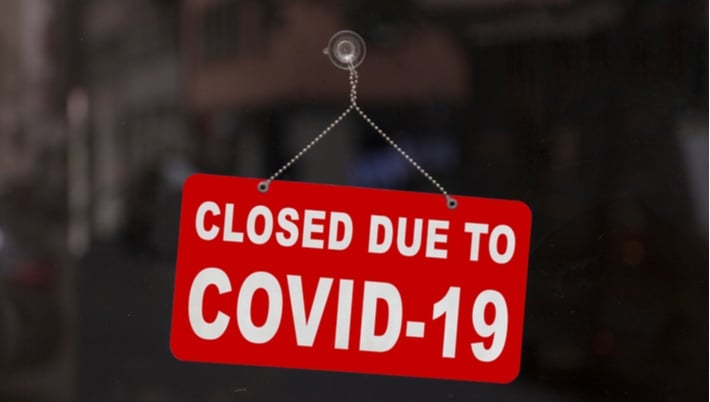Tribal casinos are struggling to balance keeping their staff and customers safe during the COVID-19 pandemic with providing desperately-needed income for their tribes. One option could be to offer no deposit bonus codes to new players.
Around the country, native American tribes have been hit hard by the closures of their casinos. The casinos provided their members with employment and provided the tribes with income for infrastructure needs. As states lock down, reopen and lock down again based on the ups and downs of the numbers of infected residents, the casinos are also in flux. Even when operating at quarter- or half-capacity, the casinos are often the only form of employment for locals. Without some kind of operation or online casino option, the financial situation for tribe members has become dire.
California
Tribes in San Diego County have spurred recommendations to keep their casinos shuttered. They reopened, despite criticism from health officials and from some tribe members themselves. The casinos are trying to adhere to health recommendations that will limit the spread of coronavirus but it’s not clear as to whether it’s working – according to public health officials, since the casinos reopened in May, more than 300 cases of infection have been reported by people who had visited a casino during the week prior to testing positive.
Due to the fact that the casinos are on tribal lands, the county can’t disclose information about outbreaks that occurred at the casinos – casinos are considered to be sovereign entities and therefore aren’t obligated to abide by federal and state disclosure laws. The tribal governments have released little information.
The casinos are adhering to all health recommendations including requiring that masks be worn on the casino premises, taking temperatures of people who enter the casino, maintaining social distancing at the slot machines and requiring attendants at table games to wear protective gear. Some casinos have had plexiglass barriers installed.
Some casino employees have spoken out, saying that the health protocols aren’t being followed on a consistent basis. They say that crowds form despite efforts to prevent such gatherings and it’s hard to enforce the mask-wearing policies. The casinos have hired safety officials who remind customers to wear masks but if a customer refuses, the casino often lets it slide.
Eight of California’s gaming tribes have reopened. Since they reopened in May, according to county public health officials, 196 patrons and 112 employees with confirmed cases of COVID-19 visited a local casino within 14 days of their illness. Ninety-one of those cases occurred since Sept. 1.
The state is sympathetic to the tribal casinos’ reticence to share information. Some of the tribes have been attacked after publication of information about COVID-19 cases on their tribal lands. Now however, there is hope that the tribes are prepared to work with the county. Three of the area’s gaming tribes, the Rincon Band of Luiseño Indians, Viejas Band of Kumeyaay Indians and the Pala Band of Mission Indians have signed memorandums of understanding with the county, agreeing to share information about outbreaks.
Navajo Nation
Governing officials of the Navajo Nation have approved the reopening of the tribes four casinos located in Arizona and New Mexico. The casinos have been closed since March but despite a warning by the tribe’s health director that the pandemic is spreading out of control in tribal areas, the Navajo Nation Council gave its OK to the Navajo Nation Gaming Enterprise to reopen the casinos at 50% capacity.
The casinos’ 1200 employees, most of whom are members of the tribe, have been on administrative leave since March. The Gaming Enterprise is using up its cash reserves to keep paying its employees. According to the Huron Daily Tribune, the Enterprise's interim chief executive, Brian Parrish explained that, “Our concern is that if we're unable to reopen, we're going to be forced into a situation where we would no longer have the cash reserves to be able to open again at some point in the near future.”
Parrish said that the Enterprise is working with tribal and federal health experts to draw up a health and safety plan. The plan would lay out the conditions for the casinos’ reopening including hand sanitizer and masks, a ban on smoking and social distancing.
Not everyone is on board with the push to reopen. Navajo Nation Council delegate Carl Slater wants to keep the casinos shuttered for the meantime so as not to overwhelm the tribe’s healthcare system. The Navajo Nation has been one of the hardest hit communities by the pandemic. According to Dr. Jill Jim, director of the Navajo Nation Department of Health, who said the tribe is still seeing close to 100 new corona cases every day. The reopening plan specified that the casinos won’t reopen until the community spread has lowered but that’s all in the past. The question is now, how do the casinos move forward?
Connecticut
Foxwoods Resort Casino in Connecticut, operated by the Mohegan tribe, has come up with a novel approach to keeping at-risk gamers safe during their casino visits. Based on the assessment that COVID-19 is riskier for people with underlying conditions and for older people, the Foxwoods Resort Casino is designating one entire floor in its Rainmaker Casino for the use of gamblers who fall into these categories. Foxwoods says that it’s the first casino to implement such a strategy.
Cardplayer.com quotes CEO and senior vice president of Resort Operations Jason Guyot as saying, “As part of our commitment to providing an unmatched experience for our guests, we are thrilled to introduce this new offering for guests ages 55 and older….The safety of our loyal patrons has been our number one priority since reopening on June 1, and we are excited to offer them this exclusive experience where they can relax and play in a safe, frequently sanitized environment.”


